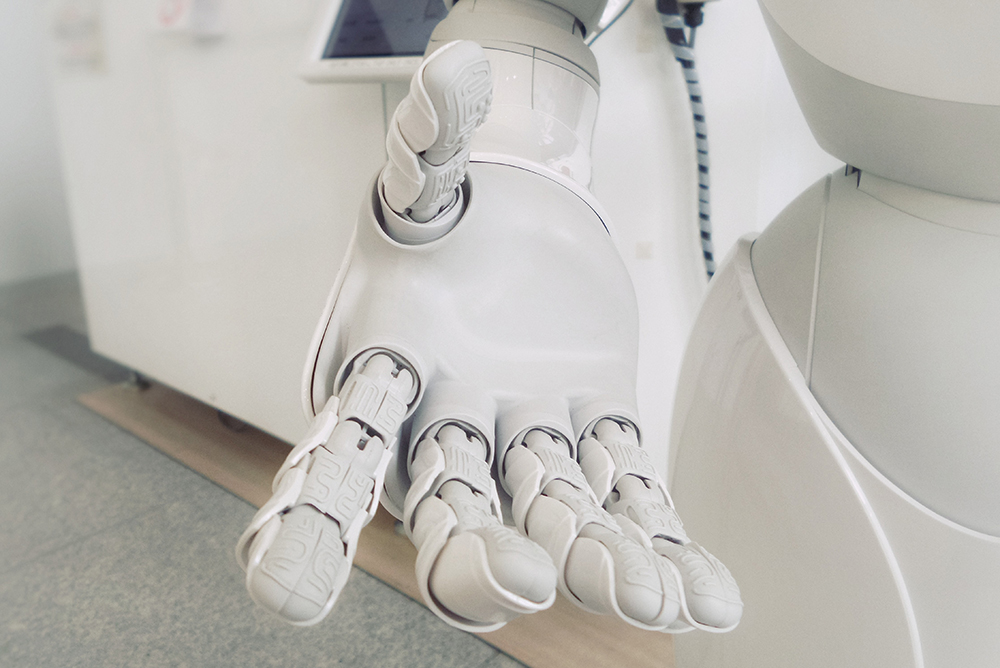Prof. Dr. Oliver Bendel has been teaching information ethics, AI ethics, robot ethics, and machine ethics at the FHNW for around 15 years. He is responsible for the “Ethik und Technologiefolgenabschätzung” (“Ethics and Technology Assessment”) module in the new Business AI degree program at the FHNW School of Business in Olten. Here, the focus is on AI ethics, but students will also learn about robot ethics and machine ethics approaches – including annotated decision trees and moral prompt engineering. And they will use information ethics, including data ethics, to analyze and evaluate the origins and flows of data and information and engage in bias discussions. Last but not least, they will delve into technology assessment. Oliver Bendel also teaches the “Ethik und Recht” (“Ethics and Law”) module in the Business Information Systems degree program at the FHNW School of Business in Olten (which he took over in 2010 as “Informatik, Ethik und Gesellschaft”, later renamed “Informationsethik”), the “Recht und Ethik” (“Law and Ethics”) module in the Geomatics degree program at the FHNW School of Architecture, Construction and Geomatics in Muttenz, and “Ethisches Reflektieren” (“Ethical Reflecting”) and “Ethisches Implementieren” (“Ethical Implementing”) in the Data Science degree program at the FHNW School of Engineering in Brugg-Windisch. His elective modules on social robotics are very popular (Photo: Pati Grabowicz).
A Universal Translator Comes
The idea of a Babel Fish comes from the legendary novel or series of novels “The Hitchhiker’s Guide to the Galaxy”. Douglas Adams alluded to the Tower of Babel. In 1997, Yahoo launched a web service for the automatic translation of texts under this name. Various attempts to implement the Babel Fish in hardware and software followed. Meta’s SeamlessM4T software can handle almost a hundred languages. In a blog post, the American company refers to the work of Douglas Adams. “M4T” stands for “Massively Multilingual and Multimodal Machine Translation”. Again, it is a language model that makes spectacular things possible. It has been trained on four million hours of raw audio. A demo is available at seamless.metademolab.com/demo. The first step is to record a sentence. The sentence is displayed as text. Then select the language you want to translate into, for example Japanese. The sentence is displayed again in text form and, if desired, in spoken language. A synthetic voice is used. You can also use your own voice, but this is not yet integrated into the application. A paper by Meta AI and UC Berkeley can be downloaded here.
AI Ethics and Animals
The impact of robotics and artificial intelligence on non-human animals has been researched by Oliver Bendel for several years. He has made it his task to complement the discipline of animal-computer interaction, which was founded by Clara Mancini, with the discipline of animal-machine interaction. His most recent paper is “Passive, Active, and Proactive Systems and Machines for the Protection and Preservation of Animals and Animal Species”, published February 25, 2022, in Frontiers of Animal Science. Also becoming active in this field now is the famous ethicist Peter Singer. Together with his co-author Yip Fai Tse, he published the article “AI ethics: the case for including animals” in July 2022. From the abstract: “The ethics of artificial intelligence, or AI ethics, is a rapidly growing field, and rightly so. While the range of issues and groups of stakeholders concerned by the field of AI ethics is expanding, with speculation about whether it extends even to the machines themselves, there is a group of sentient beings who are also affected by AI, but are rarely mentioned within the field of AI ethics – the nonhuman animals. This paper seeks to explore the kinds of impact AI has on nonhuman animals, the severity of these impacts, and their moral implications. We hope that this paper will facilitate the development of a new field of philosophical and technical research regarding the impacts of AI on animals, namely, the ethics of AI as it affects nonhuman animals.” (Peter Singer and Yip Fai Tse 2022) In the text, the authors write: “Of the hundreds of AI ethics related papers we reviewed in this project, we only found four that concern the impacts of AI on animals, in a general way, and discuss the relevant ethical implications. They are: ‘Towards animal-friendly machines’ by Oliver Bendel, ‘AI Ethics and Value Alignment for Nonhuman Animals’ by Soenke Ziesche, ‘Moral Consideration of Nonhumans in the Ethics of Artificial Intelligence’ by Andrea Owe and Seth Baum and ‘Animals and AI. The role of animals in AI research and application – An overview and ethical evaluation’ by Leonie Bossert and Thilo Hagendorf.” (Peter Singer and Yip Fai Tse 2022) The article will certainly give the young disciplines a further boost.
Beethoven’s Finished
Beethoven’s previously unfinished 10th Symphony – in short Beethoven’s Unfinished – has been completed by AI technology. “The work will have its world premiere in Germany next month, 194 years after the composer’s death.” (Classic fm, 28 September 2021) This is what Sophia Alexandra Hall writes on the Classic fm website on 28 September 2021. “The project was started in 2019 by a group made up of music historians, musicologists, composers and computer scientists. Using artificial intelligence meant they were faced with the challenge of ensuring the work remained faithful to Beethoven’s process and vision.” (Classic fm, 28 September 2021) Dr Ahmed Elgammal, professor at the Department of Computer Science, Rutgers University, said that his team “had to use notes and completed compositions from Beethoven’s entire body of work – along with the available sketches from the Tenth Symphony – to create something that Beethoven himself might have written” (Classic fm, 28 September 2021). You can listen to samples here. Whether the German composer would have liked the result, we will unfortunately never know.
AI and Society
The AAAI Spring Symposia at Stanford University are among the community’s most important get-togethers. The years 2016, 2017, and 2018 were memorable highlights for machine ethics, robot ethics, ethics by design, and AI ethics, with the symposia “Ethical and Moral Considerations in Non-Human Agents” (2016), “Artificial Intelligence for the Social Good” (2017), and “AI and Society: Ethics, Safety and Trustworthiness in Intelligent Agents” (2018) … As of 2019, the proceedings are no longer provided directly by the Association for the Advancement of Artificial Intelligence, but by the organizers of each symposium. As of summer 2021, the entire 2018 volume of the conference has been made available free of charge. It can be found via www.aaai.org/Library/Symposia/Spring/ss18.php or directly here. It includes contributions by Philip C. Jackson, Mark R. Waser, Barry M. Horowitz, John Licato, Stefania Costantini, Biplav Srivastava, and Oliver Bendel, among others.
Research Program on Responsible AI
“HASLER RESPONSIBLE AI” is a research program of the Hasler Foundation open to research institutions within the higher education sector or non-commercial research institutions outside the higher education sector. The foundation explains the goals of the program in a call for project proposals: “The HASLER RESPONSIBLE AI program will support research projects that investigate machine-learning algorithms and artificial intelligence systems whose results meet requirements on responsibility and trustworthiness. Projects are expected to seriously engage in the application of the new models and methods in scenarios that are relevant to society. In addition, projects should respect the interdisciplinary character of research in the area of RESPONSIBLE AI by involving the necessary expertise.” (CfPP by Hasler Foundation) Deadline for submission of short proposals is 24 January 2021. More information at haslerstiftung.ch.
Launch of the Interactive AI Magazine
AAAI has announced the launch of the Interactive AI Magazine. According to the organization, the new platform provides online access to articles and columns from AI Magazine, as well as news and articles from AI Topics and other materials from AAAI. “Interactive AI Magazine is a work in progress. We plan to add lot more content on the ecosystem of AI beyond the technical progress represented by the AAAI conference, such as AI applications, AI industry, education in AI, AI ethics, and AI and society, as well as conference calendars and reports, honors and awards, classifieds, obituaries, etc. We also plan to add multimedia such as blogs and podcasts, and make the website more interactive, for example, by enabling commentary on posted articles. We hope that over time Interactive AI Magazine will become both an important source of information on AI and an online forum for conversations among the AI community.” (AAAI Press Release) More information via interactiveaimag.org.
Announcing AIhub.org
AAAI has announced the launch of a new website, which has the goal to connect the AI community with the public. “By providing free, high-quality technical and accessible information about AI, AIhub.org aims to improve public understanding so that everyone can have a meaningful discussion about the deployment of AI in society.” (Newsletter AAAI, 23 April 2020) According to the organization, AIhub.org hosts daily updates about the latest news, opinions, tutorials, and events in AI. “All information is produced by those working directly in the field, without filter or intermediary.” (Newsletter AAAI, 23 April 2020) This means that everyone in the AI community has the opportunity to participate in the website and address topics such as AI ethics and robot philosophy. More information via aihub.org.







